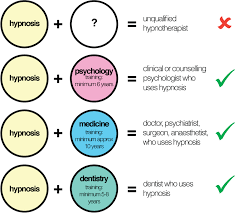The Power of Magnesium and Melatonin for Better Sleep
Getting a good night’s sleep is essential for our overall health and well-being. Two natural supplements that have gained popularity for their potential to improve sleep quality are magnesium and melatonin.
Magnesium
Magnesium is an essential mineral that plays a crucial role in various bodily functions, including muscle relaxation and the regulation of neurotransmitters that are important for sleep. Research suggests that magnesium deficiency may be linked to insomnia and poor sleep quality.
Supplementing with magnesium can help promote relaxation, reduce stress, and improve the quality of sleep. It may also help regulate melatonin production, the hormone that controls our sleep-wake cycle.
Melatonin
Melatonin is a hormone produced by the pineal gland in the brain in response to darkness. It helps regulate our circadian rhythm, signaling to the body when it’s time to sleep and wake up. Melatonin supplements are commonly used to treat insomnia and other sleep disorders.
By taking melatonin supplements, individuals can potentially improve their sleep onset latency (the time it takes to fall asleep), increase total sleep time, and enhance overall sleep quality. It is particularly beneficial for those who struggle with jet lag or irregular work schedules.
Combining Magnesium and Melatonin
When used together, magnesium and melatonin can complement each other’s effects on promoting better sleep. Magnesium helps relax the body and mind, while melatonin signals the brain that it’s time to rest.
It’s important to consult with a healthcare provider before starting any new supplement regimen, as individual needs may vary. Additionally, incorporating good sleep hygiene practices such as maintaining a consistent bedtime routine, creating a comfortable sleeping environment, and limiting exposure to screens before bed can further enhance the benefits of magnesium and melatonin supplementation.
By harnessing the power of magnesium and melatonin, individuals can support their natural sleep cycles and enjoy restful nights filled with rejuvenating rest.
Top 5 FAQs About Taking Magnesium and Melatonin for Sleep
- Can I take magnesium and melatonin together?
- Is it OK to take magnesium every night?
- How much magnesium and melatonin should I take for sleep?
- What should you not take melatonin with?
- Why is melatonin no longer recommended?
Can I take magnesium and melatonin together?
When considering whether to take magnesium and melatonin together, it is important to consult with a healthcare provider to ensure that this combination is safe and appropriate for your individual needs. Magnesium and melatonin are both natural supplements known for their potential benefits in promoting relaxation and improving sleep quality. While magnesium can help relax the body and regulate neurotransmitters important for sleep, melatonin plays a key role in signaling the body’s sleep-wake cycle. Combining these two supplements may complement each other’s effects in promoting better sleep. However, it is crucial to seek professional guidance to determine the proper dosage, timing, and potential interactions with other medications before incorporating magnesium and melatonin into your daily routine.
Is it OK to take magnesium every night?
Taking magnesium every night can be beneficial for some individuals, especially those who struggle with sleep issues or have a magnesium deficiency. Magnesium plays a crucial role in promoting relaxation, reducing stress, and improving sleep quality. However, it’s essential to consult with a healthcare provider before incorporating any supplement into your daily routine, including magnesium. While magnesium is generally considered safe for most people when taken at recommended doses, excessive intake may lead to side effects such as diarrhea or stomach discomfort. Your healthcare provider can help determine the appropriate dosage and frequency of magnesium supplementation based on your individual needs and health status.
How much magnesium and melatonin should I take for sleep?
Determining the appropriate dosage of magnesium and melatonin for sleep can vary depending on individual factors such as age, weight, and overall health condition. It is recommended to start with a lower dosage and gradually increase it as needed while closely monitoring its effects on your sleep quality. For magnesium, a common starting dose is around 200-400 mg before bedtime, while melatonin typically ranges from 0.5-5 mg taken 30 minutes to an hour before sleep. However, it is crucial to consult with a healthcare provider or a qualified professional to receive personalized guidance tailored to your specific needs and to ensure safe and effective use of these supplements for improving your sleep patterns.
What should you not take melatonin with?
When considering the use of melatonin, it is important to be aware of certain substances or medications that may interact with it and potentially reduce its effectiveness. One key consideration is avoiding the consumption of melatonin with alcohol, as alcohol can interfere with the body’s ability to metabolize melatonin properly. Additionally, individuals should exercise caution when taking melatonin with sedatives or medications that have sedative effects, as combining these substances can increase drowsiness and impair cognitive function. It is always recommended to consult with a healthcare provider before combining melatonin with any other supplements or medications to ensure safe and effective use.
Why is melatonin no longer recommended?
Recent studies and medical opinions have raised concerns about the long-term use of melatonin supplements and their potential impact on natural melatonin production in the body. While melatonin can be effective for short-term use in certain situations, such as adjusting to jet lag or managing occasional sleep disturbances, there is growing evidence that prolonged reliance on exogenous melatonin may disrupt the body’s ability to produce this hormone naturally. As a result, healthcare professionals are increasingly cautious about recommending melatonin as a long-term solution for sleep issues and encourage exploring alternative strategies, such as improving sleep hygiene practices or addressing underlying factors contributing to poor sleep quality. It is advisable to consult with a healthcare provider before starting or discontinuing any supplement regimen, including melatonin, to ensure personalized and informed decision-making regarding sleep management.




